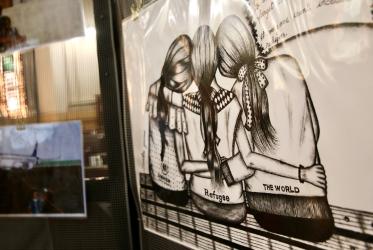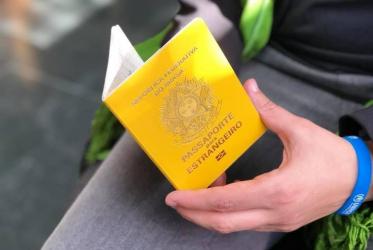Mostrando 1 - 20 de 78
WCC webcast will mark 8th anniversary of #IBelong Campaign to end statelessness
04 Noviembre 2022
https://www.oikoumene.org/livestream
WCC Webinar: “Statelessness, A Product of Racialized Nationality?”
24 Marzo 2022
Online - https://us02web.zoom.us/webinar/register/WN_zq7lb0rFQlq_mgwb45fEyQ






